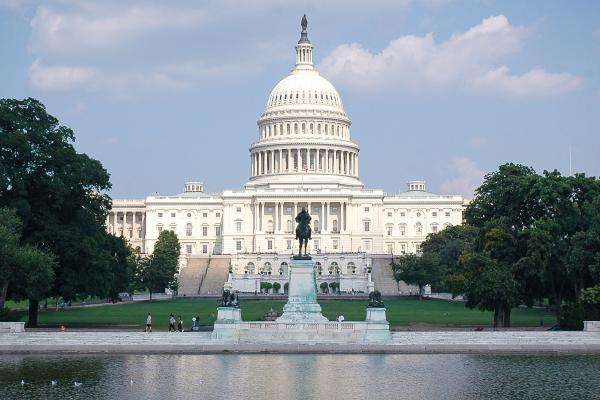Perspectives on Labor, Employment & OSHA
862 total results. Page 17 of 35.
A ‘How-To’ Guide for Obtaining Remedies for Intentional, Bad Faith Conduct
Yesterday, the National Labor Relations Board reversed course and held that employers may discipline employees represented by a newly elected union before a collective bargaining agreement is negotiated, and without having to give the union notice and an opportunity to bargain over the discipline.
When California employers have arbitration agreements with employees, those agreements may encompass a dispute concerning wages. If an employee sues for wages, the employer can petition the court to compel arbitration based on the agreement.
Yesterday, the EEOC answered a question that has perplexed employers for weeks: Under the ADA, may employers require antibody testing before they permit employees to re-enter the workplace?
The 2020 edition of Legal 500 US has rated 43 Arent Fox LLP attorneys as national leaders in their field. In addition, 14 of the firm’s practice areas were ranked among the best in the country.
Earlier today, the U.S. Supreme Court held that discrimination based on sexual orientation or transgender status is sex discrimination in violation of Title VII of the Civil Rights Act of 1964.
In a landmark ruling issued during Pride month, the United States Supreme Court ruled that Title VII of the Civil Rights Act of 1964 prohibiting gender discrimination in employment, bars employers from discriminating against employees based on their sexual orientation or transgender status.
With the economy reopening, on June 11, 2020, the EEOC updated its COVID-19 Technical Assistance Publication — What You Should Know About COVID-19 and the ADA, the Rehabilitation Act, and Other EEO Laws — to identify concerns that employers may face as they plan for employees to return to the workpl

Many states and localities have issued stay-at-home orders, and have closed on-site business operations to all but essential businesses and their employees. To enable employers to navigate those restrictions, we provide below a brief description of each state’s and the District of Columbia’s stay-at
Confirming decades of established precedent, the California Supreme Court recently concluded in Nationwide Biweekly Administration, Inc. v. Superior Court of Alameda County, that there is no right to a jury trial in Unfair Competition Law (UCL) or False Advertising Law (FAL) actions.
After facing several hurdles, effective June 1, 2020, the National Labor Relations Board (NLRB) has finally implemented a host of changes to its rules and regulations governing representation elections.
On Friday, May 29, 2020, President Trump issued a proclamation, effective Monday, June 1, 2020, suspending indefinitely the entry into the US of certain Chinese students and researchers.
Recently, while attention has understandably been focused on employment issues arising out of the COVID-19 pandemic, the Maryland legislature has passed several non-pandemic pro-employee laws that were not vetoed by Governor Larry Hogan. All of these laws become effective on October 1, 2020.
Under the National Labor Relations Act, the National Labor Relations Board (NLRB) conducts secret ballot elections to determine whether or not employees in a unit wish to be represented by a union.
On May 20, 2020, the US Department of Labor (DOL) announced a final rule that clarifies that payments in addition to the fixed salary are compatible with the use of the fluctuating workweek method under the Fair Labor Standards Act (FLSA).
As New York City businesses prepare for New York State Governor Andrew Cuomo to lift the New York State Pause Order and reopen businesses in the five boroughs.
The US Department of Labor’s Wage and Hour Division (WHD) announced a final rule to provide a single analysis for all employers when determining whether they qualify as “retail or service” establishments for purposes of the exemption from overtime pay applicable to commission-based employees.
The Massachusetts economy has been battered by the COVID-19 pandemic. On March 23, 2020, Massachusetts Governor Charlie Baker ordered the mandatory shutdown of non-essential businesses, curtailed essential business operations, restricted the size of gatherings, and advised citizens to stay at home.
Your employees may be “essential,” but do they have to work? The answer is, of course, it depends.
Thousands of businesses nationwide are trying to reopen after shutting their doors because of statewide stay at home orders due to COVID-19. Without question, this has created a significant burden on employers whose financial obligations.
The workers’ compensation system was created to ensure that employees who suffer work-related accidents or illnesses are compensated while, at the same time, protecting employers from lawsuits by these employees.
We previously reported on how the federal Worker Adjustment and Retraining Notification Act (WARN) and its state law equivalents would apply to layoffs, furloughs, and closings during the coronavirus pandemic.
During the current COVID-19 pandemic, one question for employers has been whether employees who contract COVID-19 may be able to recover workers’ compensation benefits. In California, a new Executive Order by Governor Newsom significantly increases that likelihood by presuming that many employees’ C
The Family First Coronavirus Response Act (FFCRA), which took effect on April 1, 2020, provides two paid leave benefits for certain employees, including two weeks of Emergency Paid Sick Leave and up to 12 weeks of Enhanced Family and Medical Leave (FMLA).
Businesses across the country are facing challenges, including lawsuits, as they grapple with how COVID-19 has impacted their operations, work forces, and supply chains. The wave of litigation is rising, and it appears that no industry is immune.